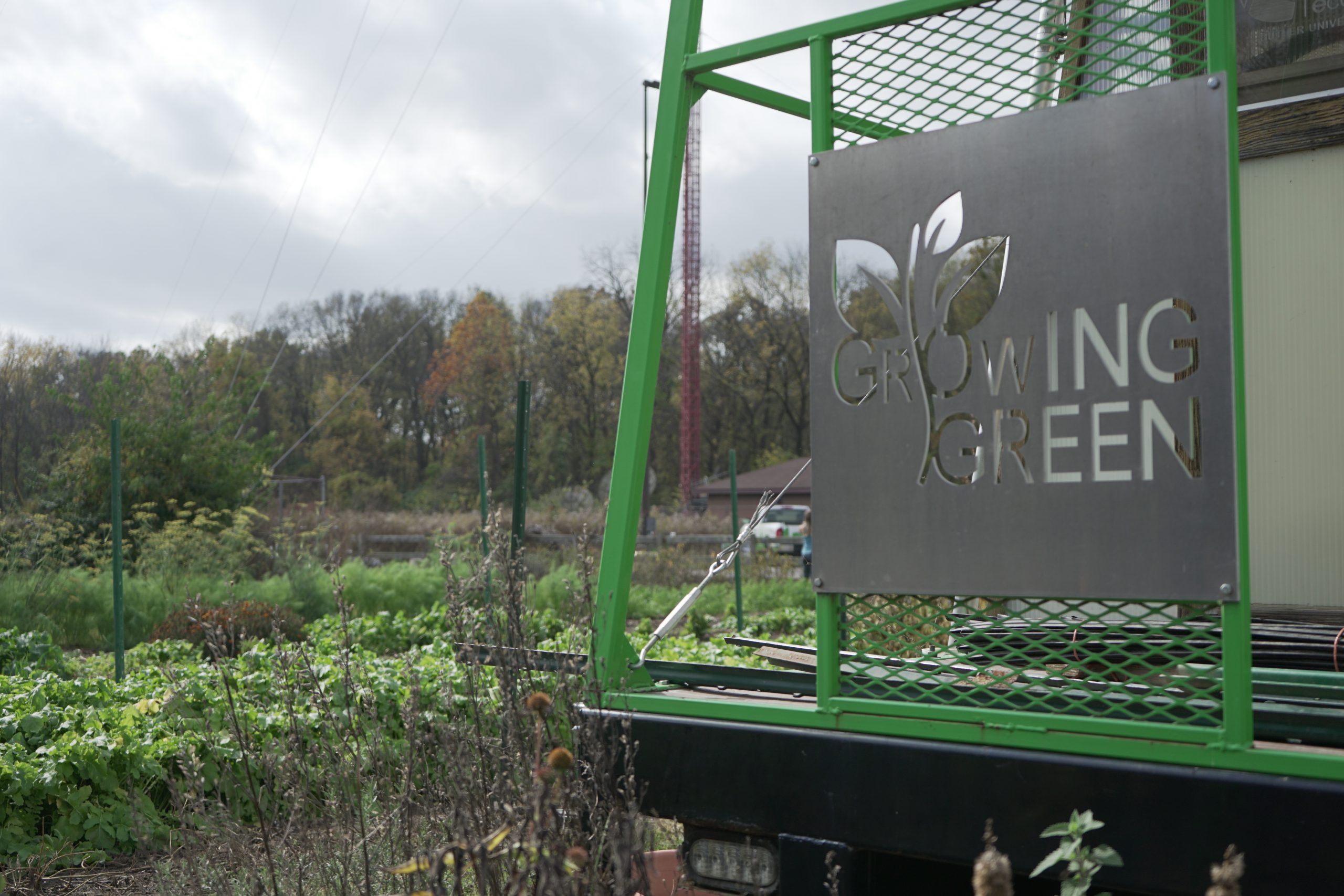The donation will go to the Center for Urban Ecology and Sustainability. Photo by Francie Wilson.
SOPHIE CIOKAJLO | STAFF REPORTER | sciokajl@butler.edu
The Center for Urban Ecology and Sustainability, or CUES, aims to utilize all aspects of the Butler community to create a more sustainable environment both on Butler’s campus and in the larger community. CUES aims to achieve this by working on sustainability projects on campus, exemplified by the Farm at Butler, a sustainable agricultural project focused on research, education and production of produce that is then sold and distributed to the Indianapolis community.
Additionally, CUES provides opportunities for interdisciplinary research across majors and colleges, as well as sustainability and urban ecology related internships both within the center and with local organizations that have a working relationship with the center.
Recently, 1968 Butler alumna Diane Meyer Simon committed $500,000 to create the Mikhail Gorbachev Fund for the Center for Urban Ecology and Sustainability. This money will help CUES outfit their new larger space in the science complex connector building and other student programming.
Meyer Simon, who majored in psychology, went on to be on the board of Green Cross International, an organization that not only focuses on creating solutions to environmental degradation and sustainability concerns, but aims to give support to those whose lives are negatively impacted by environmental degradation in terms of poverty, health and safety.
She then went on to found Global Green USA, the American affiliate of Green Cross International, which uses partnerships with individuals and organizations to create a harmonious working relationship between the planet and human economic systems, aiming to enable both to grow and succeed.
As a part of Green Cross International, Meyer Simon worked with its founder, Mikhail Gorbachev, the former president of the USSR. Meyer Simon has now decided to name the new workspace for CUES after Gorbachev.
“After the amazing Mikhail Gorbachev changed the world by ending the Cold War and all that means, he listened to the scientists about the one challenge that the whole world faces — the deteriorating natural environment,” Meyer Simon said in an email interview with The Butler Collegian.
Meyer Simon said CUES is important to Butler’s framework. Julia Angstmann, the director of CUES, said the money will help create a convertible space that can be used for a variety of collaborative activities among CUES students, faculty and staff and Indianapolis community organizations.
“We’ve been slowly adding new things over the last couple of years and this money really is to help us give our current programs more firm footing,” Angstmann said.
Angstmann said an additional part of the donation will go towards paying students to work with CUES as fellows in a new program called the Student Leadership Cohort. These students will continue to help with research in the CUES as well as mentor incoming students. Currently, students can either volunteer or have an internship for academic credit.
“We often have students that really want to stay with us and keep working and deepening their knowledge and we really want to be able to pay them, to compensate them in some way,” Angstmann said.
Grace Olsen is a junior environmental studies major who has an internship with CUES this semester. Olsen works with Indy Wildlife Watch, a research project created by Butler faculty and CUES that aims to gather information about the wildlife in Indianapolis. This project is in correlation with the work of the Urban Wildlife Information Network, which is a coalition of research projects dedicated to collecting information on urban wildlife in various urban environments around the world. Olsen said she’s been looking at camera footage from around Indy to observe the types of wildlife and vegetation around the city.
“I think the internship really provided a lot of real-word experience,” Olsen said. “It’s something that I’d really love to do in the future, working in a research type of position, so being able to work with CUES really solidified my goals in life.”
Angstmann said students who have continued to work with CUES beyond their internship have gained a lot of experience and benefit from their work. She hopes that the student fellow position will encourage more students to continue their studies in CUES programs.



